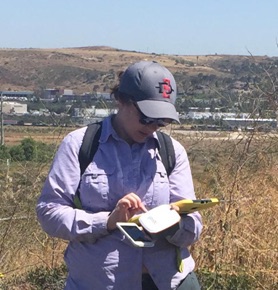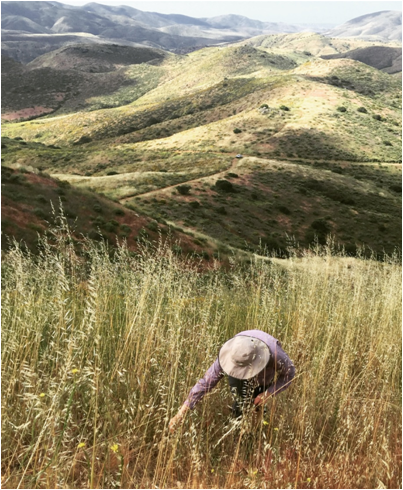Adding to the Data on Pollinators
Pollinator information about rare plants is now live on CPC website. Dr. Katie Heineman created a data sharing platform that displays pollinator information with linked references. Dr. Heineman, with the help of colleagues at San Diego Zoo Global and many volunteers, researched peer-reviewed and grey literature to identify pollinators of the rare plants in the CPC National Collection and their relatives. They created a matrix that shows the rare plant species, its pollinator group, pollinator name, the citation, and a link to the reference. They have identified pollinators associated with 1217 of the 1445 rare plants in our National Collection and/or their relatives. In total, the database encompasses 13324 records of plant-pollinator interactions for 2115 plant taxa and 2144 pollinators from 565 primary and secondary sources from the academic and grey literature. Information from the database can be easily searched by pollinator or plant common name or scientific names of family, genus, or species. Viewers can download all pollinator information from the website. CPC is excited to share this valuable resource about pollinators with our partners and the general public.


FACTS ON COLLECTING POLLINATOR INFORMATION
- Developed a database containing 13324 records of plant- pollinator interactions. This encompasses records for 2115 plant taxa and 2144 pollinators from 565 primary and secondary sources from the academic and grey literature. In total, the plant- pollinator observations encompass 758 plant genera from 166 families and 694 pollinator genera from 146 families.
- Found pollinator records for 84% of the plant species currently in the CPC National Collection (1217 of 1445 plant species). There are 345 pollinator observations specific to plant species in the current CPC National Collection, plus 103 rare plant species with Global Rankings of G1 or G2 that are currently not in the national collection. Additional observations are for relatives of the rare species. There are several ways to view the information – either from visiting profiles of rare plants or from searches for pollinators.
- Gathered information from peer-reviewed and gray literature with the help of staff and volunteers.
- Linked references using the software Zotero™ allowing users to see full bibliographic citation. In the case of references that are not copyright protected, there are links that allow a user to view the original reference.
- The information is available to the public and scientists to view or download.